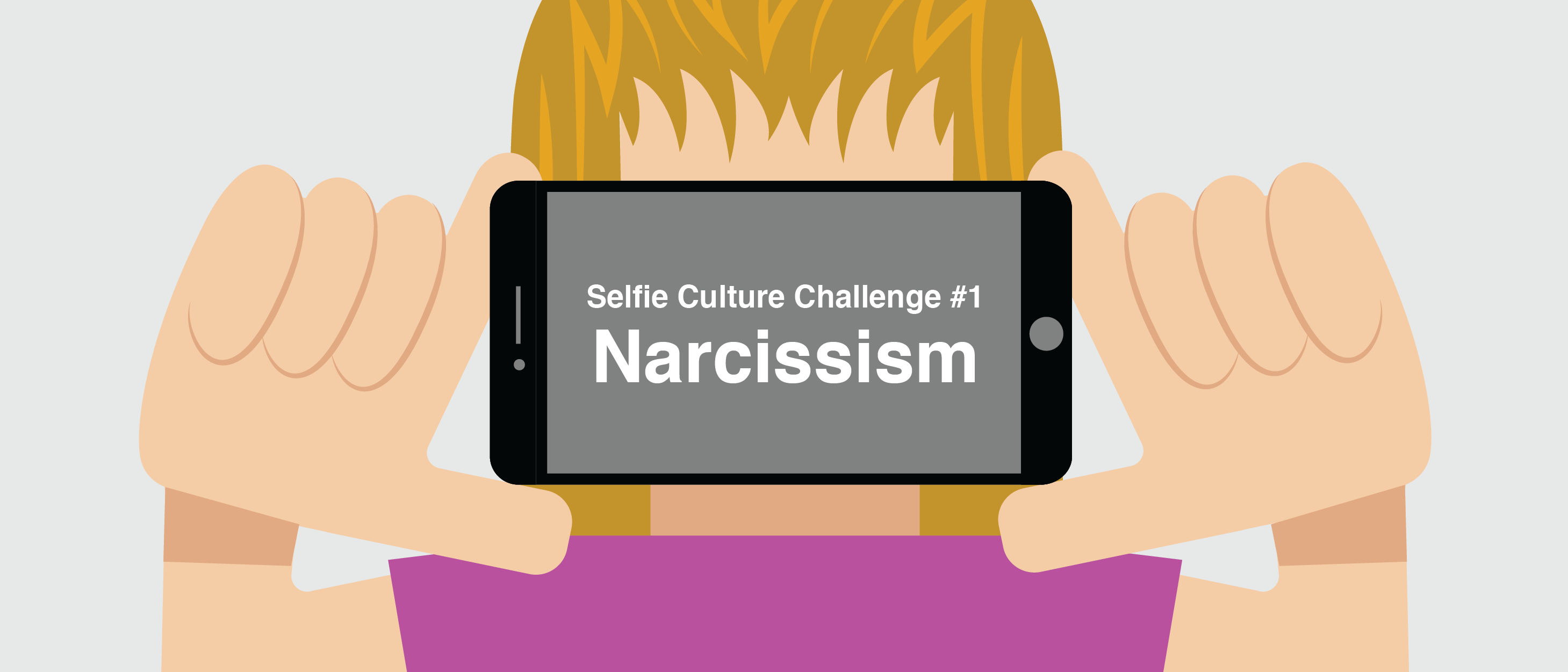


Seunga Venus Jin and Ehri Ryu focuses specifically on overt narcissists that are described as “...grandiose exhibitionism, self-enhancement, and self-confidence...” and uses conceptual and theoretical models to examine their selfie-posting behaviour of digital Narcissus (555). They argue that, “...selfies in social networking sites symbolizes users' obsession with their digital self-reflection and their desire to present the idealized self-portrait to social media audience” (555).
Jin and Ryu specifically focus on Instagram user-activity, considering it is an app that solely focuses on users posting photos and videos and using hashtags as search engines to find their posts. For example, the article states, “As of January 2018, more than 343 million posts are hashtagged with #me and more than 331 million posts are hashtagged with #selfie on Instagram” (555).

The first theory the article addresses is the relationship between narcissism and self-perception. The article explains, “According to self-discrepancy theory, the actual self is the mental representations of the attributes an individual actually possesses, whereas the ideal self is the mental representations of the attributes the individual desires to possess” (558).
This proposes that narcissism creates “...two opposing forces behind self-perception: self-confidence (confidence about the self, grandiose aspect) and self-discrepancy (discrepancy between the actual self and the ideal self, vulnerable aspect)” (558). This is highly relevant on Instagram that emphasizes on physical appearance by giving users the ability to use photo editing enhancers to create their ideal digital self.

The second theory that is outlined in the article is how narcissism influences an individual to connect with social media to fulfill their “...need to belong, popularity, and loneliness” by creating a digital self-presentation to achieve social relationships (559). This also ties in how narcissism triggers intrasexual competition for individuals for individuals by “...selfie/groupie posting as a self-regulation strategy to attract potential romantic partners” (561).
Self-promotion is the key to intrasexual competition by “...the enhancement of characteristics, such as physical attractiveness, in order to improve one‘s ability to compete against rivals...assuming that enhancement and display of physical attractiveness can assist mate choice” (562). This is especially connected to grandiose narcissism that “...is associated with posting sexier selfies, displaying more provocative content in selfies, wearing more fashionable and stylish clothing, and having more neat appearance in selfies, which provides rationales for the hypothesized relationship between narcissism and selfie-posting” (562).
In addition to the relationship between narcissism and selfie-posting, narcissists yearn to gain “...high numbers of social media sites friends and followers...enable narcissists maintain inflated selfviews and affirm grandiosity...” (564). They also “...show off quantitative indices...number of likes and comments...Instagram followers, which they believe mirror their physical attraction and reflect social media popularity” (564). Plus, the article also states, “Selfie-posting frequency is higher among people with narcissistic exhibitionism” (564).

The article also includes a conducted research from Amazon MTurk that was a survey questionnaire of 396 Instagram users to “...measure overt and grandiose narcissism of Instagram users” (564). The questionnaire measured “...behavioral outcome variables (quantitative indices of Instagram usage) include frequency of posting selfies/groupies (subjective perception of selfie/groupie-posting frequency), total numbers of selfie/groupie posts (objective and quantitative indicators of selfie/groupie posts as count variables), and total numbers of Instagram followers/followings” (565).
The key findings in the research found that “...narcissism is a positive predictor of self-confidence, intrasexual competition, favorable attitude toward selfies/groupies, and behavioral intention to post selfies/groupies” (570). The study also found that “narcissism, especially narcissistic grandiosity, has direct effects on intrasexual competition for mates, and loneliness, as well as on attitude and intention” (570).

Seunga Venus Jin and Ehri Ryu (2018). “The Paradox of Narcissus and Echo in the Instagram Pond” in Light of the Selfie Culture from Freudian Evolutionary Psychology: Self-Loving and Confident but Lonely,